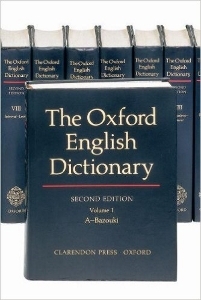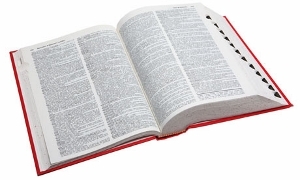Words, Words, and More Words
 Kathy Lynn Emerson/Kaitlyn Dunnett here, today musing on the English language, the origins of words, and some of their meanings.
Kathy Lynn Emerson/Kaitlyn Dunnett here, today musing on the English language, the origins of words, and some of their meanings.
Every year, major dictionaries add more words. Some have been around for quite a while before they officially become part of the English language. Others make the cut quickly, thanks in part to their frequent appearance in social media. This year, in May, Merriam-Webster added 1,700 new words.
Many aren’t all that new. Some aren’t exactly words at all. Take “WTF” for example. I hope I don’t have to tell you what the letters stand for. It’s classed as an “abbreviation,” that is “used especially to express or describe outraged surprise, recklessness, confusion of bemusement.” Hmmm.
“Selfie” made Merriam-Webster list. So did “frenemy” and “twerk.” More on that last one in a minute.
 A little over a month later, in June, the Oxford English Dictionary, affectionately known as the OED, also added new words. It also created new sub-entries and added new senses to the meanings of words already in the dictionary. I couldn’t find a total number of “new” words, but suffice it to say that “a whole bunch” covers it.
A little over a month later, in June, the Oxford English Dictionary, affectionately known as the OED, also added new words. It also created new sub-entries and added new senses to the meanings of words already in the dictionary. I couldn’t find a total number of “new” words, but suffice it to say that “a whole bunch” covers it.
The OED is a resource frequently used by writers because it makes every effort to trace each word to its earliest use in print in English. This helps writers of historical novels avoid anachronisms. Sometimes, when the OED assures us a word was in use much earlier than we thought, we still avoid using it because it just doesn’t “sound right” for the period. Case in point: the updated OED traces the meaning of “twerk” back to 1820. Who knew?
Of local interest here in Maine is the addition of the word “Masshole” as a term of contempt for someone from Massachusetts. The OED dates this word to c.1989. Personally, I’d date it a lot earlier, and apply it specifically to people in cars with Massachusetts license plates driving recklessly on Maine roads. That’s the thing about words—not only are they often in use far earlier than their first appearance in print, but their meanings tend to vary from region to region.
Other goodies from the OED list are:
carnapping
crowdfunding
declutter
e-edition
forensics
hard-bodied
meh (adjective and interjection)
netbook
retweet
webisode
wuss
 Some of these started out as made-up words. Now they’re real. Hey, this is nothing new. Shakespeare alone is credited with adding over 1,700 words to the English language. They weren’t all totally new. He changed nouns to verbs, added prefixes and suffixes, and otherwise altered meanings of existing words . . . just as someone did to create many of the words on this year’s lists. Some of my favorites among Shakespeare’s contributions to the language, with particular emphasis on those relating to crime and criminals, are bandit, circumstantial, cold-blooded, and premeditated. The Bard of Avon also gets credit for “obscene.”
Some of these started out as made-up words. Now they’re real. Hey, this is nothing new. Shakespeare alone is credited with adding over 1,700 words to the English language. They weren’t all totally new. He changed nouns to verbs, added prefixes and suffixes, and otherwise altered meanings of existing words . . . just as someone did to create many of the words on this year’s lists. Some of my favorites among Shakespeare’s contributions to the language, with particular emphasis on those relating to crime and criminals, are bandit, circumstantial, cold-blooded, and premeditated. The Bard of Avon also gets credit for “obscene.”
Don’t you just love a living language?
Kathy Lynn Emerson/Kaitlyn Dunnett is the author of over fifty books written under several names. She won the Agatha Award in 2008 for best mystery nonfiction for How to Write Killer Historical Mysteries and was an Agatha Award finalist in 2014 in the best mystery short story category for “The Blessing Witch.” Currently she writes the contemporary Liss MacCrimmon Mysteries (Ho-Ho-Homicide, 2014) as Kaitlyn and the historical Mistress Jaffrey Mysteries as Kathy (Murder in the Queen’s Wardrobe, 2015). The latter series is a spin-off from the Face Down series and is set in Elizabethan England. Her webpages are www.KathyLynnEmerson.com and www.KaitlynDunnett.com
Lea Wait's Blog
- Lea Wait's profile
- 509 followers




